Filter by
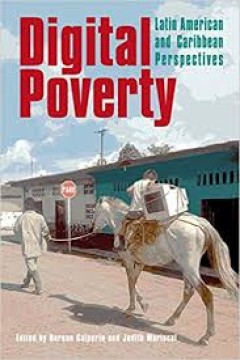
Digital poverty: Latin American and caribbean perspectives
This book examines the problem of inadequate access to information and communication technology (ICT) and the need to develop appropriate pro-poor ICT policies within the Latin American and Caribbean context. The authors show how market reforms have failed to ensure that the benefits of the Information Society have spread across the many social and economic divides that characterize the region.…
- Edition
- -
- ISBN/ISSN
- 9781552503423/9781552503429
- Collation
- 162p: ill.
- Series Title
- -
- Call Number
- 303.4833 DIG d
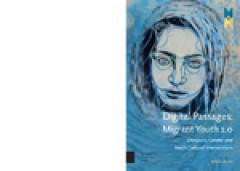
Digital passages: migrant youth 2.0. Diaspora, gender and youth cultural inte…
Increasingly, young people live online, with the vast majority of their social and cultural interactions conducted through means other than face-to-face conversation. How does this transition impact the ways in which young migrants understand, negotiate, and perform identity? That's the question taken up by Digital Passages: Migrant Youth 2.0, a ground-breaking analysis of the ways that youth c…
- Edition
- -
- ISBN/ISSN
- 9789048523047
- Collation
- 324 p.; 22 cm.
- Series Title
- MediaMatters,
- Call Number
- 305.8 LEU d

Digital image systems : photography and new technologies at the Düsseldorf S…
In Digital Image Systems, Claus Gunti examines the antagonizing reactions to digital technologies in photography. While Thomas Ruff, Andreas Gursky and Jörg Sasse have gradually adopted digital imaging tools in the early 1990s, other photographers from the Düsseldorf School have remained faithful to film-based technologies. By evaluating the aesthetic and discursive preconditions of this situ…
- Edition
- -
- ISBN/ISSN
- 9783839439029
- Collation
- 350 p.
- Series Title
- -
- Call Number
- 300 GUN D
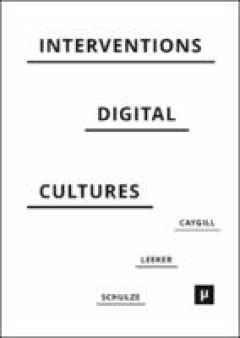
Interventions in digital cultures : technology, the political, methods
How to intervene? Interventions are in vogue in digital cultures as forms of critique or political actions into public spheres. By engaging in social, political, and economic contexts, interventions attempt to interrupt and change situations—often with artistic means. This volume maps methods of interventions under the specific conditions of the digital. How are interventions shaped by these …
- Edition
- -
- ISBN/ISSN
- 9783957961112
- Collation
- 148 p.; 23 cm.
- Series Title
- -
- Call Number
- 300 INT i
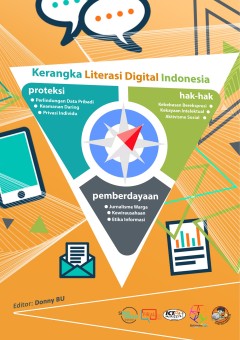
Kerangka literasi digital Indonesia
Secara umum yang dimaksud dengan literasi digital adalah kemampuan menggunakan teknologi informasi dan komunikasi (TIK), untuk menemukan, mengevaluasi, memanfaatkan, membuat dan mengkomunikasikan konten/informasi, dengan kecakpan kognitif maupun teknikal. Ada banyak model kerangka (framework) untuk literasi digital yang dapat ditemukan di Internet, dengan ragam nama dan bentuk. Setiap model mem…
- Edition
- -
- ISBN/ISSN
- 9786025132421
- Collation
- 46p. : ill.
- Series Title
- -
- Call Number
- 303.4833 KER k
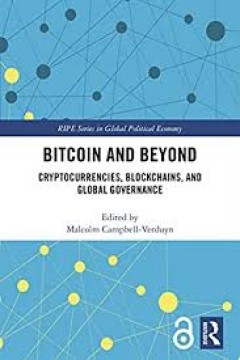
Bitcoin and beyond: crytocurrencies, blockchains, and global governance
This volume brings scholars of anthropology, economics, Science and Technology Studies, and sociology together with global political economy scholars in assessing the actual implications posed by Bitcoin and blockchains for contemporary global governance. Its interdisciplinary contributions provide academics, policymakers, industry practitioners and the general public with more nuanced understa…
- Edition
- -
- ISBN/ISSN
- 9781315211909
- Collation
- xiii, 208p.: ill.
- Series Title
- -
- Call Number
- 332.178 BIT b
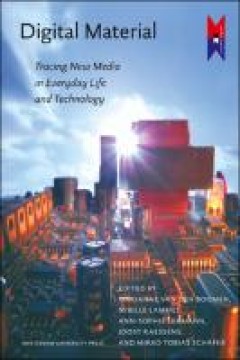
Digital material : tracing new media in everyday life and technology
Three decades of societal and cultural alignment of new media have yielded a host of innovations, trials, and problems, accompanied by versatile popular and academic discourse. New Media Studies crystallized internationally into an established academic discipline, and this begs the question: where do we stand now? Which new questions are emerging now that new media are being taken for granted, …
- Edition
- -
- ISBN/ISSN
- 9789089640680
- Collation
- 303 p.
- Series Title
- -
- Call Number
- 070.4 DIG d
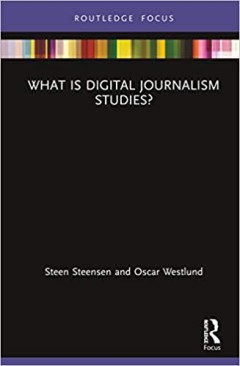
What is digital journalism studies?
What is Digital Journalism Studies? delves into the technologies, platforms, and audience relations that constitute digital journalism studies’ central objects of study, outlining its principal theories, the research methods being developed, its normative underpinnings, and possible futures for the academic field. The book argues that digital journalism studies is much more than the study of …
- Edition
- -
- ISBN/ISSN
- 9780429259555
- Collation
- xii, 124p.: ill.
- Series Title
- -
- Call Number
- 070.1 STE w
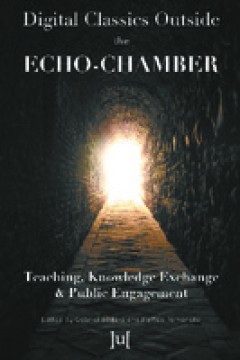
Digital classics outside the echo-chamber : teaching, knowledge exchange and …
This volume, edited by the organizers of the “Digital Classicist” seminars series, presents research in classical studies, digital classics and digital humanities, bringing together scholarship that addresses the impact of the study of classical antiquity through computational methods on audiences such as scientists, heritage professionals, students and the general public. Within this conte…
- Edition
- -
- ISBN/ISSN
- 9781909188471
- Collation
- XII, 221 p.
- Series Title
- -
- Call Number
- 070.5 DIG d
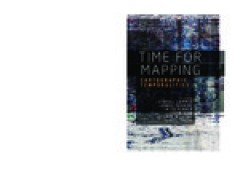
Time for mapping: cartographic temporalities
"The digital era has brought about huge transformations in the map itself, which to date have been largely conceptualised in spatial terms. Novel objects, forms, processes and approaches have emerged and pose new, pressing questions about the temporality of digital maps and contemporary mapping practices: in spite of its implicit spatiality, digital mapping is strongly grounded in time. This co…
- Edition
- -
- ISBN/ISSN
- 9781526122520
- Collation
- 140p: ill.
- Series Title
- -
- Call Number
- 526 HIN t
 Computer Science, Information & General Works
Computer Science, Information & General Works  Philosophy & Psychology
Philosophy & Psychology  Religion
Religion  Social Sciences
Social Sciences  Language
Language  Pure Science
Pure Science  Applied Sciences
Applied Sciences  Art & Recreation
Art & Recreation  Literature
Literature  History & Geography
History & Geography